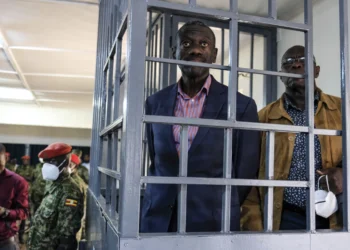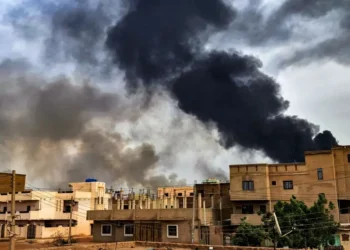Nigerian lawmakers have approved an additional $200 million for the health sector as part of the country’s 2025 spending plan, aiming to offset the shortfall caused by the suspension of U.S. aid.
The move comes after the Trump administration froze funding from the U.S. Agency for International Development (USAID) for 90 days, a decision that has raised concerns about the impact on Nigeria’s healthcare system.
Nigeria, Africa’s most populous nation with over 200 million people, was among the top ten recipients of U.S. foreign aid in 2023. USAID contributed over $600 million that year to support efforts such as malaria prevention, HIV treatment, and vaccine distribution. The sudden funding halt has left a critical gap in the country’s health infrastructure, prompting swift action from Nigerian lawmakers.
Senate Appropriations Chair Sen. Adeola Olamilekan highlighted the urgency of the situation during a budget session, warning that Nigeria could face “adverse effects” due to the aid suspension, particularly in controlling diseases.
The newly approved $200 million allocation, part of the larger $36.6 billion federal budget, will help bridge the gap. According to the approved bill, the funds will “fill the gap created by the U.S. Government’s suspension of intervention to the health sector,” ensuring that vaccine supplies and epidemic treatments continue without interruption.
Beyond healthcare, the funding freeze could also impact Nigeria’s humanitarian programs, especially in the conflict-ridden northeast, where Islamist insurgents have waged war against the government since 2009. The decade-long crisis has spilled into neighboring Chad, Niger, and Cameroon, further complicating regional security.
USAID has previously worked with international partners, including the U.N. migration agency, to address emergencies in these areas through projects such as the Rapid Response Fund, which provides displaced communities with shelter, sanitation, and protection. The uncertainty surrounding U.S. aid now threatens to disrupt these critical efforts.
Nigeria’s Alternative Funding Sources
While the United States has historically been a major donor, Nigeria receives financial assistance from other international partners, which remain key in sustaining essential sectors. The European Union (EU) has allocated €510 million in humanitarian assistance for Nigeria and other Sub-Saharan African nations in 2025.

Japan stepped in with a JPY15 billion (US$97 million) loan to help address Nigeria’s food security crisis. Signed in April 2024, this loan focuses on bolstering agricultural infrastructure and improving domestic food production capacity. With a low-interest rate and a 30-year repayment plan, the deal provides Nigeria with favorable financial terms to strengthen its agricultural sector amid rising concerns over food shortages.
China’s economic relationship with Nigeria continues to grow, with trade volumes exceeding $20 billion in 2024. While China does not directly contribute to Nigeria’s budget through aid, its economic engagement bolsters Nigeria’s economy through trade partnerships and infrastructure investments, playing an indirect role in supporting national development.
Germany, another strong supporter, committed EUR 101.09 million in 2021 for development programs, targeting areas such as education, healthcare, and economic growth.
Global financial institutions such as the World Bank also play a significant role in Nigeria’s fiscal landscape. Programs like the States Fiscal Transparency, Accountability, and Sustainability (SIFTAS) initiative aim to improve public financial management at the state level, ensuring better resource allocation and reducing financial inefficiencies. These efforts indirectly support the national budget by enhancing transparency and increasing revenue generation.
The aid landscape remains dynamic, with donor contributions fluctuating annually based on negotiations and changing global priorities. While Nigeria’s new budget adjustment seeks to minimize the immediate impact of U.S. aid cuts, the long-term sustainability of its healthcare and humanitarian efforts may depend on diversifying funding sources and strengthening domestic revenue mobilization. As the country navigates these financial challenges, maintaining stability in critical sectors will be essential for its future development.
READ ALSO: Foreign Ministry Establishes Student Desks in Diplomatic Missions





















